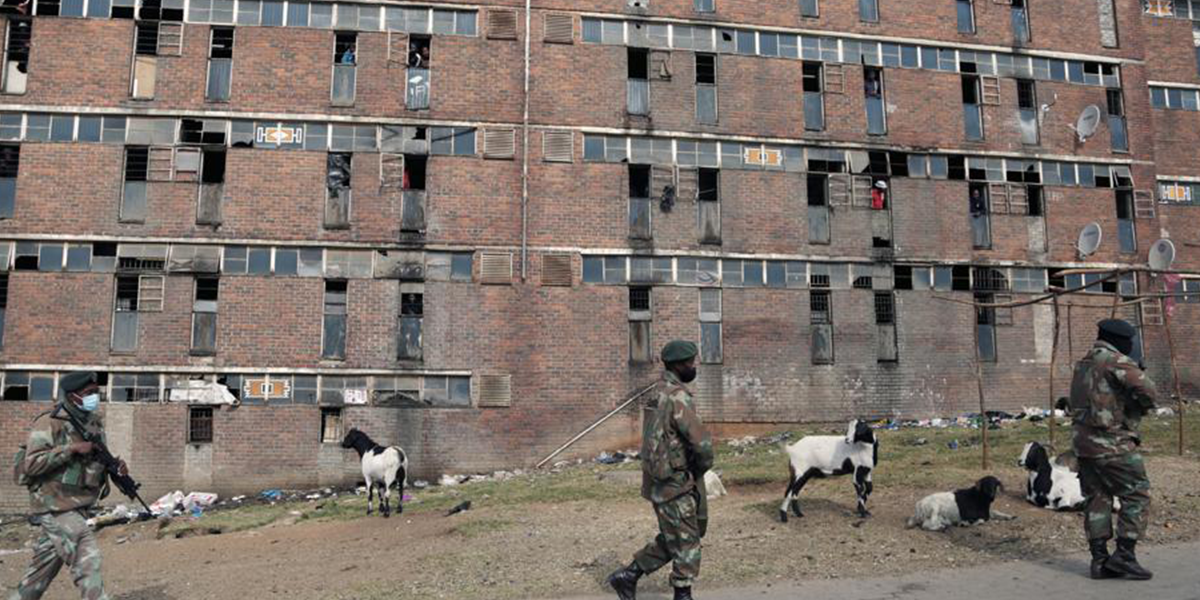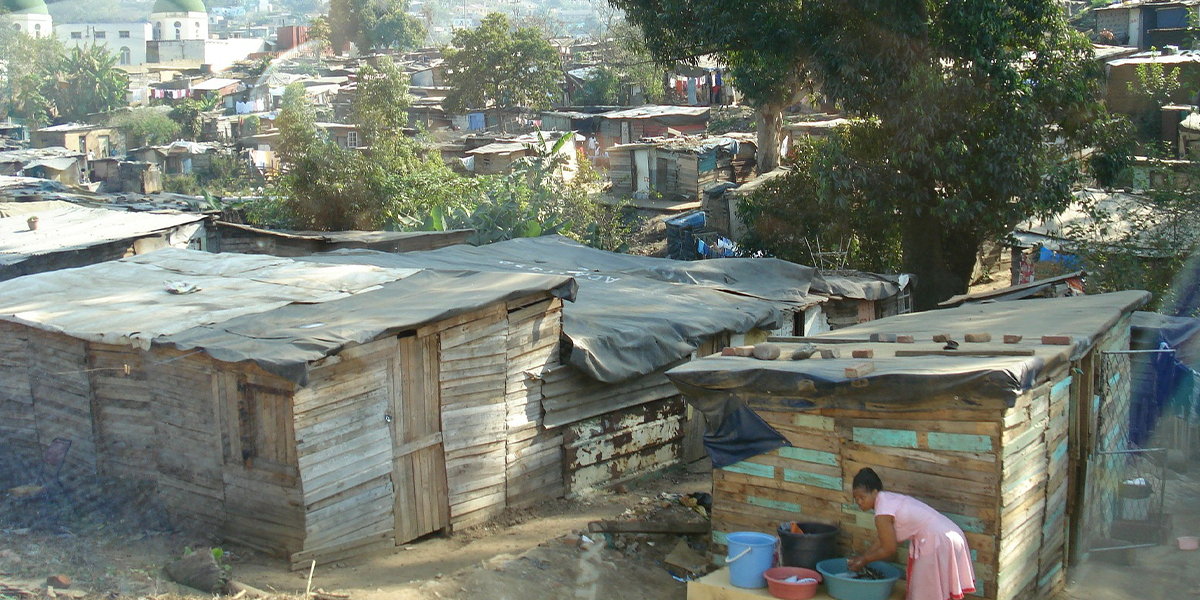News
After the Looting: A Snap Survey Reveals What South Africans Think — And Fear
A snap survey of South Africans conducted countrywide after the spate of looting which rocked the nation in the wake of the jailing of former president Jacob Zuma shows all races believed that the government's response was too slow.

Director, The Brenthurst Foundation

Research Director, The Brenthurst Foundation

Strategic Communications Advisor

The survey, conducted by The Brenthurst Foundation in association with Sabi Strategy, illustrates that more South Africans are fearful of the future than hopeful, with black South Africans the most fearful. Despair also outscored feeling “positive”, which came in lowest by some stretch.
Conducted telephonically among 1,605 respondents, the survey took place during the week of 21 July, and is weighted according to national statistics on gender, age, race and province.
Some 37% of South Africans polled are fearful of the future, while 21% despair and only 36% of South Africans are hopeful. For those that despair or fear about South Africa's future, political leadership and the economic situation are the main reasons. A total of 39% of black South Africans are fearful, and just 36% hopeful. Coloureds and whites were more hopeful than fearful, at 29%/43% and 27%/31% respectively, while Indians were the least hopeful and most fearful at 48%/30%.
It found that the government's response to the crisis was rated marginally more effective than ineffective, but these scores paled against the widespread belief that the government had reacted too slowly. This appears to back up the view that the security forces were not prepared for the widespread looting because of poor intelligence.
A majority of respondents in KZN (64%) and Gauteng (76%), however, believed the government's response to the unrest and looting was either too slow or ineffective.
Perceptions of which party responded better to the events largely mirror demographic voting patterns, with the ANC rated as the best among black South Africans (37%), and the DA as most effective among coloureds, Indians and whites (28%, 20% and 31% respectively).
Support for former president Zuma and the Economic Freedom Fighters' Julius Malema appeared to have plummeted, while support for President Cyril Ramaphosa was highest, followed by support for the DA's John Steenhuisen.
Ramaphosa logged positive scores among every racial group, including 60% favourability among whites, and 58% among black South Africans, scoring 57% favourability overall among all race groups. He was familiar to all those polled.
Zuma and Malema were rated negatively by all race groups, scoring 49% and 50% unfavourability respectively among South Africans, suggesting very low support for the radical redistributive policies and corruption with which they have been associated. This may also explain Ramaphosa's positive score. Zuma and Malema's support bottomed among whites at a 69% and 91% unfavourability rating.
Among those polled in KZN, however, Zuma enjoyed a 54% favourability rating but a 58% unfavourability rating in Gauteng, while Malema polled 36% and 52% unfavourability scores in the respective two provinces.
Steenhuisen scored overwhelmingly positively among whites (55% favourability) and to a lesser extent among Indians and coloureds, but had a high (32% unfavourable to 8% favourable) negative rating amongst black South Africans. His biggest challenge seems to be that many (43%) of those polled were unfamiliar with him.
Overall, 41% of South Africans say they were directly affected by the unrest and looting in the week of 12 July. Those affected by the unrest indicated the main issues as food shortages and loss of employment.
Indians reported the highest response to being “directly affected” by the looting, reflecting the epicentre of the violence in KZN, followed by black South Africans. Blacks reported being directly affected more than twice as much as whites, who reported being least affected, giving the lie to the view that the looting was racially redistributive.
Blacks reported being most affected by food shortages — again being more than twice as affected as whites. Black respondents were most affected by unemployment following the disruption.
Overall, the low government effectiveness rating (22%) and “too slow” rating (46%) should be troubling for the ANC. Similarly, the domination of the “effective response” by the DA among white (31% to ANC 6%), coloured (31% to 16%) and Indian (20% to 3%) voters is noteworthy.
Perhaps the most revealing issue, however, is in the survey of voting patterns.
Excluding those who did not vote, with 70% of black South Africans owning up in the poll as having vote for the ANC in 2019, and 64% of whites, 43% of Indians and 57% of coloureds for the DA, the country would seem to be, more than a quarter century after 1994, racially polarised, though the multiracial support for Ramaphosa would seem to indicate this is somewhat dissipating, especially when compared to his predecessor.
This article was originally published by Daily Maverick.


